|
Vidas: Hi, guys, this is Vidas.
Ausra: And Ausra. V: Let’s start episode 412, of Secrets of Organ Playing Podcast. This question was sent by Terry, and he writes: Very helpful! I did the 12 week course earlier and that was very helpful, as well, but did not have the scales. There are a couple of scales, however, that may require orthopedic surgery on my ankles to achieve a legato perfection! But, I will stay with it. Thanks for all you do. Terry V: Terry is talking about probably, our Pedal Virtuoso Master Course. And not everyone is able to do those scales and arpeggios, I think. But, as he says, orthopedic surgery is certainly not needed. A: Definitely. No wonder you hurt yourself. V: Right. As we always emphasize, technique exists for a person, and not the other way around. If something doesn’t feel right, adjust it, or skip it. Agree? A: That’s right. Don’t hurt yourself. I’ts the most important thing. V: Umm… A: But of course, I know what Terry means. I remember myself playing Dupré’s first preludes, first preludes out of those famous three ones: B Major, G minor… V: And F minor. A: And F minor. V: F minor is the second... A: Yes, F minor is the slowest, the second one. And G minor is probably the most famous, the third one. So I played the first one—B Major. And fugue actually had that fast and very elaborated subject, and it was quite a pain for me to play legato in the pedal. V: Mmm-hmm. Right! You need the higher heels. A: That’s right. And you might need to cheat sometimes, a little bit—just a little bit, to reach very wide intervals. V: Talking about the heels, last night, or not last night, maybe a couple of nights before, we had Unda Maris Studio rehearsal, and I found that one person needed organ shoes. But in Lithuania, what you have to do is either order shoes from abroad, over the internet, or go to some local shops and see what fits. But there is a third option too. I also found dancers shoe shop. And we saw online catalog, and it seems that some of the dance shoes really fit to play the organ too. A: Yes. Dance shoes are good. Not of course all, not the ballroom dances, but like folk type dances. V: Mmm-hmm. A: The shoes for them are suited well to play organ too. V: Right! So, do you think, Ausra, that men's shoes also could have high heels sometimes? A: Well, it’s hard for me to say because I’m not a man. V: But it doesn’t hurt, right? A: Yes, probably, because if now if I compare to organ shoes, men and women, definitely women's heel is higher than men’s. V: Mmm-hmm. A: So… V: Maybe it’s because, it’s a generalization of course, but men are sometimes or often higher than women. A: But still, if you are playing the pedalboard, then [it] doesn’t matter how long your feet, how long your legs are. Because I’m just talking about the high heels… V: Uh-huh. A: How high the heel is. V: Probably what matters most is how long your lower legs are. A: Probably how long is your foot itself. V: And foot, right? So, yeah. Maybe extending your heels would be sometimes wise—artificial extending. A: (Laughs). Yes. Make a surgery to extend your foot. V: No! (Laughs). I just say, what you could go to the shoemaker and ask him or her to adjust the heel—make it longer, higher. A: That’s right. V: Okay, so, maybe I’m not sure with what kind of shoes Terry is playing pedal scales too. Some people play with socks, without shoes. A: Well, don’t do it. I don’t think it’s a wise thing. V: Mmm-hmm. A: Then you can really hurt yourself. V: That’s right. But any rate, when you learn those scales, then they stay with you. It’s a good warm-up exercise before your regular practice. You could spend fifteen minutes every day just polishing up your skills and arpeggios before you really start playing the repertoire, hymns or improvisation or anything else. Right Ausra? A: That’s right. V: Thank you guys. This was Vidas. A: And Ausra. V: And remember; when you practice... V: Miracles happen!
Comments
Would you like to master Christe, du Lamm Gottes, BWV 619 by J.S. Bach? I've created this practice score with complete fingering and pedaling so that our students could master this chorale prelude from the Orgelbuchlein efficiently, saving many hours of frustration and achieving ideal articulation - articulate legato. Thanks to Gerrit Jordaan for his meticulous transcription from slow motion video. Basic level. PDF score. 1 page. 50 % discount is valid until March 22. Check it out here This score is free for Total Organist students.
Vidas: Hi guys, this is Vidas.
Ausra: And Ausra. V: Let’s start episode 403, of Secrets of Organ Playing Podcast. This question was sent by Leon. And he writes: Dear Ausra and Vidas, Remind your students of Dupré 79 Chorals, a very useful set. I’m almost halfway through it and he gives the difficulty level on the last page of his introduction. Grace and peace, Leon V: Are you familiar, Ausra, with this set? A: Yes, I have seen this set, I have played a few of them. V: I love this set for a few reasons. First of all, probably because in the preface of “79 chorals”, Dupré writes his memorization procedures. Earlier, I was talking on the podcast about how Dupré and Walcha memorized differently. So, Dupré memorizes by taking a fragment of 4 mesures, and memorize mesure by mesure. Then 2 mesures at a time : 1+2, 2+3, 3+4. Then 3 measures at a time : 1+2+3, 2+3+4, and then everything together, 1, 2, 3, and 4. Always starting and ending on the downbeat. A: It even sounds boring as you’re telling this, and you know, to apply this to practice, it would kill me. I never used any method of memorization because it took me lots of trouble to do it, and I often tried to memorize things very fast and at the last moments, and then I would experience this panic attack “No I have to go and perform” and I still have nightmares about it so, in general I don’t like to talk about memorization. V: That’s why you and me will never become rectors of Paris Conservatory! A: That’s ok with me! V: And never win the “Grand Prix of Rome” in composition. A: Do you think if I would decide now to apply this method and to memorize some pieces everyday, I would still be able to achieve such a career? V: Only if you cut your wrist and play pedals with vengeance for 3 months, like he did in his youth. A: Wow! Maybe I’ll just stick to my life and my path. But well, let’s go back to the “79 chorals” collection. I think it’s a wonderful set to have, especially for church musicians, it’s very handy. Because they are all based on the choral tunes, so all of them have a title, and you can apply them for various occasions, depending on your church calendar, so it’s very handy. The only problem might be that not everybody likes Dupré’s musical style. V: True. Plus, he writes that thos “79 chorals” are meant to be like an introduction before a student is ready to play Bach’s music, Bach’s Orgelbüchlein chorals for example. Because if you jump in and start with Bach’s Orgelbüchlein chorals, they’re too difficult for the beginner. And the easiest one from “79 chorals”, it only has 3 parts and it moves I think in 8 notes, like a short trio, like Lemmens would write. But this is more extended but not too much, you see. But I see just one problem with that : in Dupré’s understanding, all of these chorals should be played completely legato. And if the student buys Dupré’s collection, reads the preface, starts to practice like Dupré recommends – and he also talks about articulation and legato-playing – then a student, after finishing quite a few of those chorals, would jump into Orgelbüchlein by Bach. And what would happen? He wouldn’t know how to play with articulation. A: Well, anyway, if I would be working with this collection, I wouldn’t connect these two collections together, Bach and Dupré. These are completely different, so I don’t think you need to connect them. V: But he was intending… A: Well, it’s okay, but, well, he’s dead for a long time now so, do you think he would be mad if somebody wouldn’t play these two collections one after another? V: Believe me, if you saw Dupré now, an apparition of Dupré, you would want to play his chorals legato! A: Well, you know I remember, once when we studied at Michigan University and Pamela, during Lent time at Peace Auditorium, on that wonderful Eolian Skinner organ, she had this recital of Dupré, huh… V: Stations of the Cross. A: Yes and she had these beautiful slides and there was local priest, not far from campus, he was reading from the Bible. So it was a sort of very serious, nice event. And the priest liked Pamela very much and he liked those slides very much but about Dupré’s music he wasn’t, you know… V: Impressed? A: Impressed at all. So, you know, it’s a matter of taste really. V: Uh-uhm. But as a purely pedagogical collection I think it has real value because, as Leon says, at the end of this collection, a student can check in which order he or she should play. Because Dupré gives the order of difficulty. A: Plus because it’s a light collection and these pieces are not too hard and not too long so it’s really well suited for a church organist, because we’re always short on this kind of music that we can learn fast and apply to a service. V: Yeah. So it could be a nice introduction to trio-playing or legato techniques if one would need to play later let’s say Boellmann or Franck, or Vierne. Right? For Bach I think, if one would think of playing Bach after Dupré, then I would probably suggest they should articulate even Dupré, you know? Do you agree? Say yes. A: Well… V: Say yes please! A: Well, I wouldn’t agree. Because Dupré is Dupré and Bach is Bach. You need to use some articulation in Dupré of course, because of freezing and repeated notes. But… I wouldn’t read Dupré as Bach, as well as I wouldn’t read Bach as modern romantic. V: Uh-uh. So, what can you say, just one piece or composer, what would you play before Bach, if you were just starting to play the organ? But not Bach. A: Well, you mean baroque composers? V: Yes, as a preparation for Bach. A: Well, maybe Pachelbel. V: Pachelbel, that’s right. Bach studied from Pachelbel scores too. A: True. V: He rewrote them and made them into larger compositions. A: And I remember Pachelbel’s is also a good choice for church musicians. There is a Dover publications of complete works of Pachelbel. I don’t think it includes entirely all compositions, but it has you know, huge selection of his music and I enjoyed working with that collection when I was a church organist. V: You’re talking about choral compositions? A: Yes, chorals, not free works. V: Free works I think is another set in Dover collection. A: So I think Pachelbel is a good composer to prepare you for Bach. V: And he wrote versets in Magnificat, Dover reprinted them too. So yeah. Thank you guys for listening and sending in those wonderful questions. We love helping you grow. And remember, when you practice… A: Miracles happen! Would you like to master Erstanden ist der Hel'ge Christ, BWV 628 by J.S. Bach? I've created this practice score with complete fingering and pedaling so that our students could master this chorale prelude from the Orgelbuchlein efficiently, saving many hours of frustration and achieving ideal articulation - articulate legato. Thanks to Jeremy Owens for his meticulous transcription from slow motion video. Basic level. PDF score. 1 page. 50 % discount is valid until March 20. Check it out here This score is free for Total Organist students.
Vidas: Hi, guys, this is Vidas.
Ausra: And Ausra. V: Let’s start episode 413 of Secrets of Organ Playing Podcast. This question was sent by Eddie. He writes: Hi Vidas and Ausra! I enjoy your ideas on improvisation in the modern style. I am now ready to embark at the fairly late age of 69 today, on the challenging and exciting path of improvisation on the organ. I must confess, however, that I am at this stage a real dummy and raw beginner, but I have a great desire and urge to be able to at least be able to improvise somewhat before I die. I have also embarked on online organ teaching, which is also an exciting endeavor for me. God bless, and keep on with your and your wife’s good work for organists. Regards, Eddie V: What are your thoughts, Ausra, for starters, about Eddie’s improvisation efforts when he is 69 years old? A: I think that it’s amazing that people at various ages pursue their dreams. I think it’s wonderful, because you know that you have dreams, you do something new, you learn something new, it means you will not get old so soon. V: You are so right, Ausra. I just, you know, have this laptop in my lap. And when I open my new window on the browser, by clicking new tab, I get this greeting, “Good morning, Vidas! What is your main focus for today?” The computer talks to me. And there is a sentence for every day, and today, the sentence is, “Anyone who stops learning is old.” (laughs) Henry Ford. A: So it just proves what I am saying, if you are still interested in something and learning new things, it means you are not old. V: Exactly. And the most probably inventive and successful people on earth never stop learning. A: I think it’s very important to stay curious about something all the time. V: That’s right, Ausra. What are you curious today about? A: Well today, I am curious about how I will draw the comic. Because the theme of today is very interesting. It’s Iron Man, and I probably will have to draw Spiky as an Iron Man, and so far I don’t have an idea how to do it. V: Put Spiky in armor. A: That’s right. V: I might have to either develop your idea further, like steal your idea, or do an Iron Man from another character. Maybe our bird, Cornelius. A: That’s true. So now, what do you think about new learning improvisation at the age of 69? Do you think it’s a very hard thing? Or it’s possible? V: No, of course everything is possible. But with age, probably people need more patience. A: Do you think people in general are more patient with age, or not? V: It depends on how you react into, onto the changes and other circumstances around you. I’ve seen people who are patient, and I’ve seen people who are getting very impatient, too. A: So, Vidas, could you tell us what would be your steps if you would be 69 and would want to learn to improvise. What actions would you take? V: I assume Eddie is interested in modern style. I’m interested in modern style as well. So, I’m like the idea of starting small at the beginning. Limiting yourself at the start, and not worrying about too many stylistical ideas or technical details, but choosing just a few notes, maybe 4 notes to improvise on. Like C, D, E, and F. That could be a nice exercise. Start a timer and improvise on those 4 notes without stopping for 2 minutes or 5 minutes or 10 minutes, always trying to do something interesting with those 4 notes. And you can use any octave, any hand, you can play with pedals those pitches, any order you can mix them up. You can have different rhythms, and you can have, of course, different registration, texture. So that would be my first step. And I think it works. A: Yes, I think it would work. V: If 4 notes are too much, you know, some beginners really don’t have a good grasp of 4 fingers at all, so maybe start with one note. Let’s say C. And since you only are worrying about the note C, the pitches are not important. Everything is C. It’s like a percussion instrument, and you are only worrying about rhythms then. And do anything that you want with the pitch C, but try to do interesting rhythms. And after awhile, you can do 2 pitches after a few days, when you get comfortable. C and D. Then you will have more, like what I do with 2 pitches. It’s like, jump from C to D, it’s unbelievable. If you think one note, then suddenly 2 notes. And those 2 notes say a lot, right? I know some people might laugh at the idea, starting with C alone, but it depends on where you are. If you never touched the organ before, or keyboard before, or if you’re so afraid of making mistakes when you improvise, and you will make many mistakes, and that’s okay. Actually, make as many mistakes as you want – the more, the better. That’s my… A: Because it’s improvisation, so there cannot be mistakes. Is that right? V: Yes and no, right? If you say to yourself, “It’s a mistake,” then it’s a mistake, right? If you say “No, it’s not a mistake,” then you can elaborate that so-called mistake into an episode. Sometimes, I improvise and make sound a little bit different than what I intended. But then, I repeat a few times the same idea, and it becomes something that I intentionally did. A: I have noticed that a few times in your improvisation, yes. V: Like I had this very loud episode playing with mixtures and reeds with my hands and feet, like a culmination, and then suddenly I want to play softly, and I gradually, you know, start to reduce the stops on the manuals. Or maybe jump on the second manual and play with strings, and I sometimes forget to reduce the pedals, and this bombarde is, “BUH” like a real trombone, suddenly out of nowhere. A: Like a beast. V: So, what do I do then? I repeat it a few times. A: Repeat it, yes. V: Maybe not right away, but after 10 seconds, I repeat it. Just one note, aha. So then I have 2 trombone notes. And then maybe third time, I repeat the same note again. And maybe listeners will understand, “Oh, that’s intentional, and something, he wants to express some idea with this low bombarde note.” A: So, it’s like cheating your audience, and cheating yourself in a way. V: It’s actually going with the flow. You know, wherever your mind goes, you follow. A: So, if I understand, during improvisation, the most important thing is not to stop. V: Exactly. That is why we recommend timers. Resist the temptation to stop. The first 90 seconds are the most difficult. Actually, the first second is the most difficult. Just to sit down on the bench. A: Very exciting! V: But when you reach, let’s say, 5 minutes, you don’t want to stop. You discover, “oh, that’s interesting,” and you want to elaborate it, and when the timer goes off after maybe 10 minutes, you suddenly think, “Why did it end so quickly?” you know. A: That’s what I also noticed in your improvisations. I think, “this is the culmination, and now the end will come,” but it’s not. There’s another combination and then another one, and how will you finish it up? V: Towards the end of my recital, I have this thought, “How do I finish?” And sometimes, the piece itself, the improvisation itself, suggests the ending, too. Like, if I play some very fast running passages in the hands, maybe I can finish abruptly. We’ve gone downwards or upwards, and stop it like that, like vanishing. Not necessarily five long chords like at the end of a symphony. Sometimes I do that too, of course. A: Very exciting. So I hope Eddie got some ideas from your thoughts. V: And I always say, “Record yourself, and if you are brave, share it online for others to see.” And this feedback will help you grow, will help you sit down on the organ bench again. And participate in our Secrets of Organ Playing Contest. Remember, you don’t have to play repertoire all the time, you can play anything you want. A: Yes, we are looking forward to hear your playing. V: Yes. This was Vidas… A: and Ausra. V: And remember, when you practice… A: Miracles happen! Thank you everyone for participating! You all made us very happy with your entries. @laputis and I selected the following winners: 1st Place By @contrabourdon: https://steemit.com/secretsoforganplaying/@contrabourdon/secrets-of-organ-playing-competition-week-10 I like Flute 4 registration for the prelude. Good choice to register and the fugue rather quietly. 2nd Place By @mzm2lh:
https://steemit.com/secretsoforganplaying/@mzm2lh/secrets-of-organ-playing-contest-week-10 Lovely flow! I liked that you didn't stop when the texture got more complex. Click on the links to see their full posts and support them. Congratulations to the winners! I will send them the prizes soon. We hope to see even more entries next week! Here's a link for Week 11: https://steemit.com/@organduo/secrets-of-organ-playing-contest-week-11 And remember, when you practice, miracles happen! Have you ever wanted to start to practice on the organ but found yourself sidetracked after a few days? Apparently your inner motivation wasn't enough.
I know how you feel. I also was stuck many times. What helped me was to find some external motivation as well. In order for you to advance your organ playing skills and help you motivate to practice, my wife Ausra - @laputis and I invite you to join in a contest to submit your organ music and win some Steem. Are you an experienced organist? You can participate easily. Are you a beginner? No problem. This contest is open to every organ music loving Steemian. Rules
Rewards Every participating entry will receive our upvotes. Additionally, 3 winners will be rewarded some STEEM in the following manner: 1st Place: 10 STEEM 2nd Place: 6 STEEM 3rd Place: 4 STEEM Judging @laputis and I will serve as judges. We will pick winners based on what sounded the most interesting and best performed to us. Our goal here is to support the community while motivating you to practice, inspiring to create some amazing music and adding more smiles to everyone's day. Questions, comments, ideas? Please let us know your feedback about this contest. Support our fellow contestants - upvote, resteem and comment their entry to let them know specifically what did you appreciate about their music. Also stay tuned for the post about winners from Week 9! If you would like to participate but don't have Steem account, let me know your desired username by contacting me on my blog https://www.organduo.lt/contact.html and I will create an account for you very quickly. We hope to see even more entries next week! And remember, when you practice, miracles happen! Would you like to participate in our Secrets of Organ Playing Contest? There are less than 24 hours left to submit your videos.
Here are the rules Would you like to master Two Part Invention No. 15 in B Minor, BWV 786 by J.S. Bach? I have created this score with the hope that it will help my students who love early music to recreate articulate legato style automatically, almost without thinking. Thanks to Jan Pennell for her meticulous transcription of fingering from the slow motion video. Basic level. PDF score. 1 page. 50 % discount is valid until March 17. Check it out here This score is free for Total Organist students.
Vidas: Hi guys, this is Vidas!
Ausra: And Ausra! V: Let’s start episode 408 of Secrets of Organ Playing Podcast. This question was sent by Sally, and she writes: I worked on registration for my prelude this weekend and practiced one of the Hymns. I also worked on the Beginning Pedal studies, Day 5, and reviewed Days 1 through 4. These are a struggle for me because I am trying to following the pedal markings and am not comfortable with thirds. I don't usually want to do them with the same foot (either toe/heel or heel/toe) as I am not very accurate. The pedal studies are forcing me to work on that technique. I also tend to not use my left foot on the upper right side of the pedal board, so I am working on this as well. V: Sally is our Total Organist student, and this question, I asked at the end of the day what she was working on, and she apparently is struggling with playing thirds with the same foot on the pedals. What do you think, Ausra? A: I think many of us share this same struggle. Is it easy for you to play thirds with one foot? V: If I play without my shoes, yes, it’s very difficult, because you need heels. Right? A: Yes, but I think that, of course, you need shoes, I couldn’t agree more, but it also depends on how long your foot is. You have a longer foot, longer feet in general, so I think it’s probably easier for you. I don’t have such a long foot, and sometimes I struggle with playing thirds, too, because how will you extend your foot? It’s impossible, unless you buy bigger shoes, but then you might lose them on the organ bench. V: Exactly. A basketball player might easily play a fifth on the organ, with his size. Right? A: Well, true, but I think he or she would have another problem, and would hit, probably, a few keys at the same time. V: And probably the bench will be too low for him. A: So, all of us are different, and we all have to adjust to the organ. V: But what I liked about Sally’s report is that she doesn’t give up easily, and if something doesn’t come easily, she practices repeatedly, and I think one more issue with why playing in thirds is more difficult than playing in seconds is because you have to move your ankle even more with thirds. Right? A: That’s true, ankle flexibility is a problem for some people. V: And with practice, flexibility improves! Which means that it should come easier with time for Sally and others who are struggling with this. A: Yes! I thought about a funny thing when you said that flexibility will improve with practice. I thought, “What would happen if you would break your ankle, if you would try to practice too hard?” V: It’s the same as with stretching in the morning or in the evening. If someone does any kind of stretching, like Pilates or Yoga. If you try too hard, then it’s unhealthy. A: Yes, and I think that it is always harder to practice in the morning, the same as to do physical exercises in the morning, because on the one hand you are all fresh, but your body is very stiff in the morning. V: Right. Physical activity tends to go easier in the afternoon. That’s why singers don’t like to sing their pieces in a public setting in the morning. A: It’s because the voice is still sleeping for a few hours after you wake up. V: You might even notice my voice today. It’s sleeping, still! A: Well, it’s okay. It sounds okay for me. Well, I wanted to discuss another issue about this question about pedal exercises. Do you think they need to be polished, like 100%, each of them? V: Maybe, let’s say, 70% is quite enough, not 100%. Because, it’s technical exercise. Right? It’s not like a finished organ composition which you can play in public, or to yourself with satisfaction, an artistically pleasing manner. No, it’s just an exercise which leads to a better technique. And I always think that technique exists for person and not the other way around—the person doesn’t exist for the technique. And if something is really really uncomfortable and feels unhealthy, you have to either adapt it, or just skip. A: Yes, that’s what I thought, too, because these are not repertoire pieces, these are just technical exercises to help you to improve your technique, and even when you choose the repertoire for yourself, you need to sightread it through and see if it’s possible for you to do, that it does not have some goals that you cannot reach yet. V: Because for some people, their palm flexibility, or reach, is greater than others, and they could reach more than an octave, easily, and for some, they barely reach an octave! And if such piece has wide intervals or double thirds, double sixths, then thick texture makes playing very difficult for small hands. A: True, so you always have to check things. V: But maybe early music is your strength, and maybe trio sonatas would sound wonderful for you, because each hand only takes just one voice! A: Well, and there are later compositions that need such a playful technique, sort of small technique. V: True. Okay, guys, we hope this was useful to you. Please send us your wonderful questions; we love helping you grow, and remember: when you practice, A: Miracles happen. |
DON'T MISS A THING! FREE UPDATES BY EMAIL.Thank you!You have successfully joined our subscriber list.  Photo by Edgaras Kurauskas Photo by Edgaras Kurauskas
Authors
Drs. Vidas Pinkevicius and Ausra Motuzaite-Pinkeviciene Organists of Vilnius University , creators of Secrets of Organ Playing. Our Hauptwerk Setup:
Categories
All
Archives
July 2024
|
This site participates in the Amazon, Thomann and other affiliate programs, the proceeds of which keep it free for anyone to read.
Copyright © 2011-2024 by Vidas Pinkevicius and Ausra Motuzaite-Pinkeviciene.
Terms of Service and Privacy Policy
Copyright © 2011-2024 by Vidas Pinkevicius and Ausra Motuzaite-Pinkeviciene.
Terms of Service and Privacy Policy

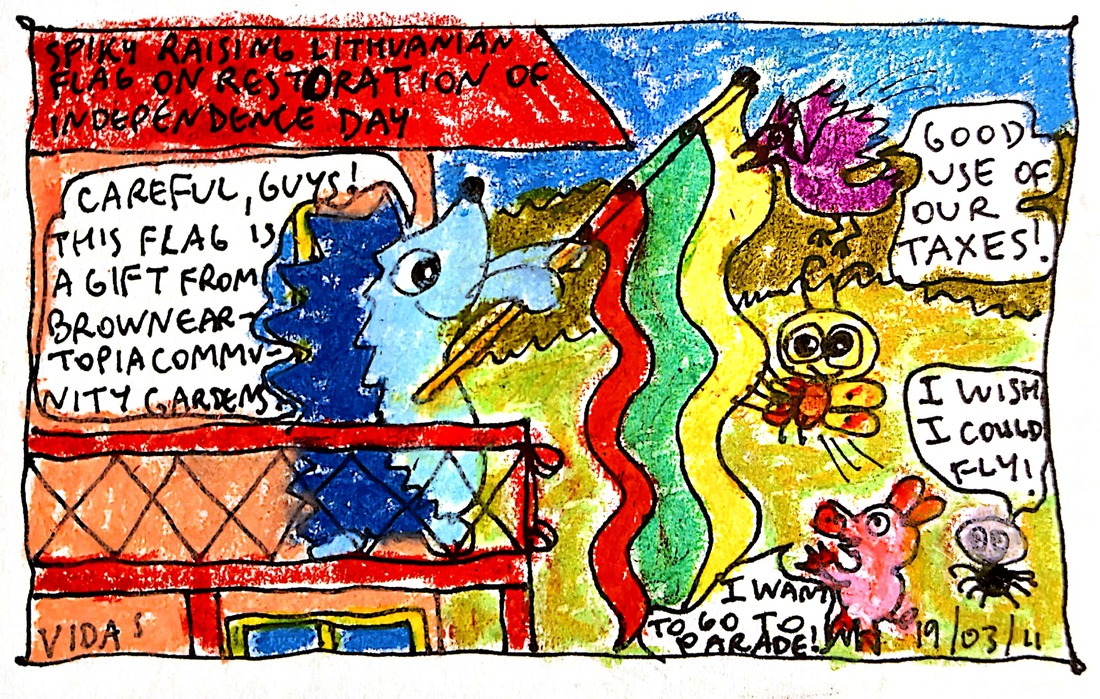
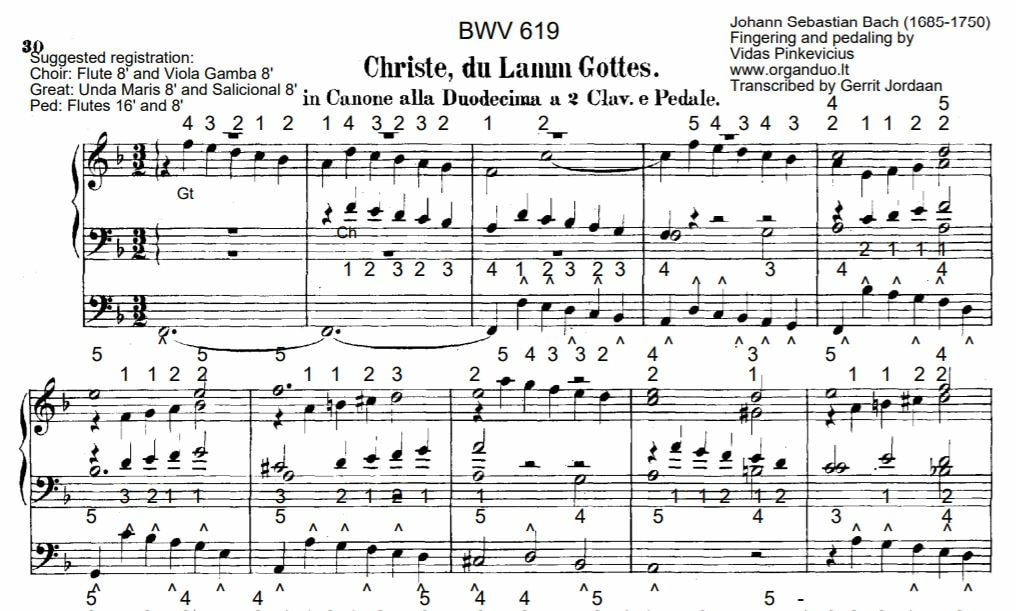

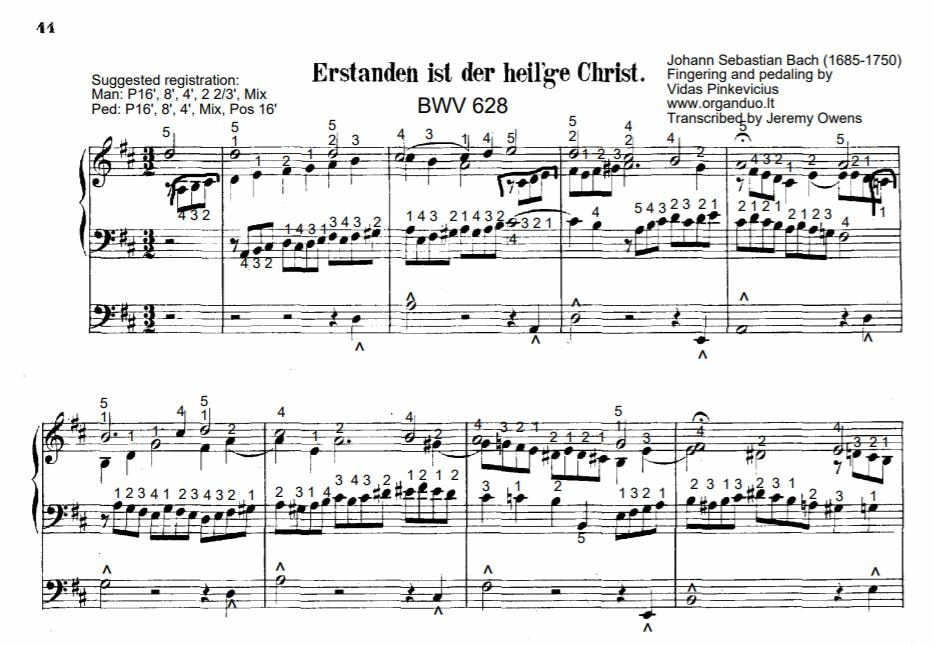

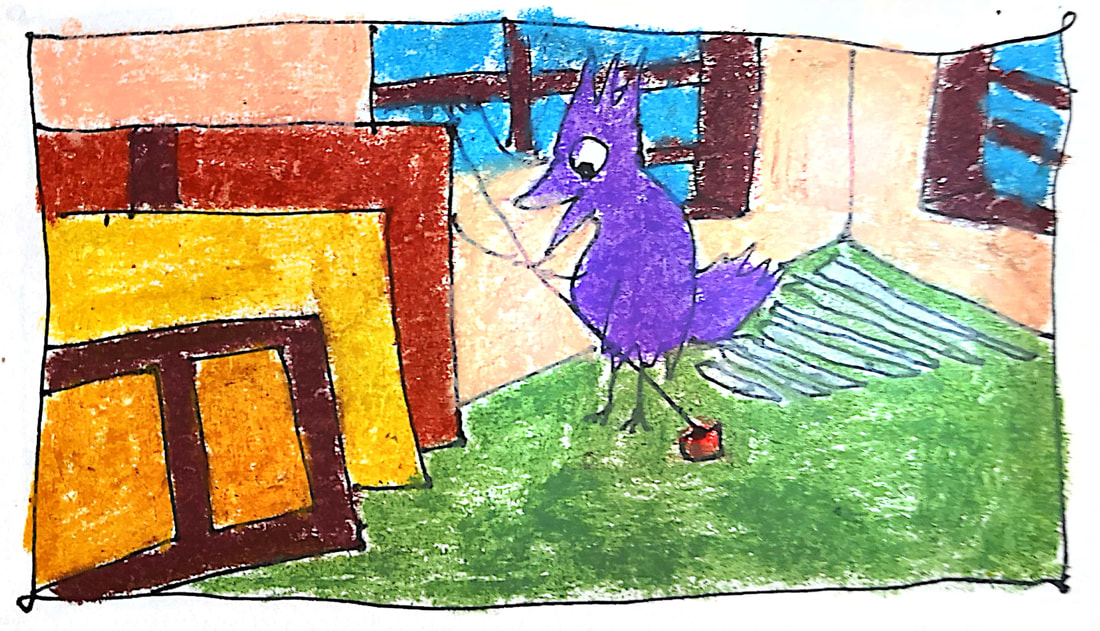
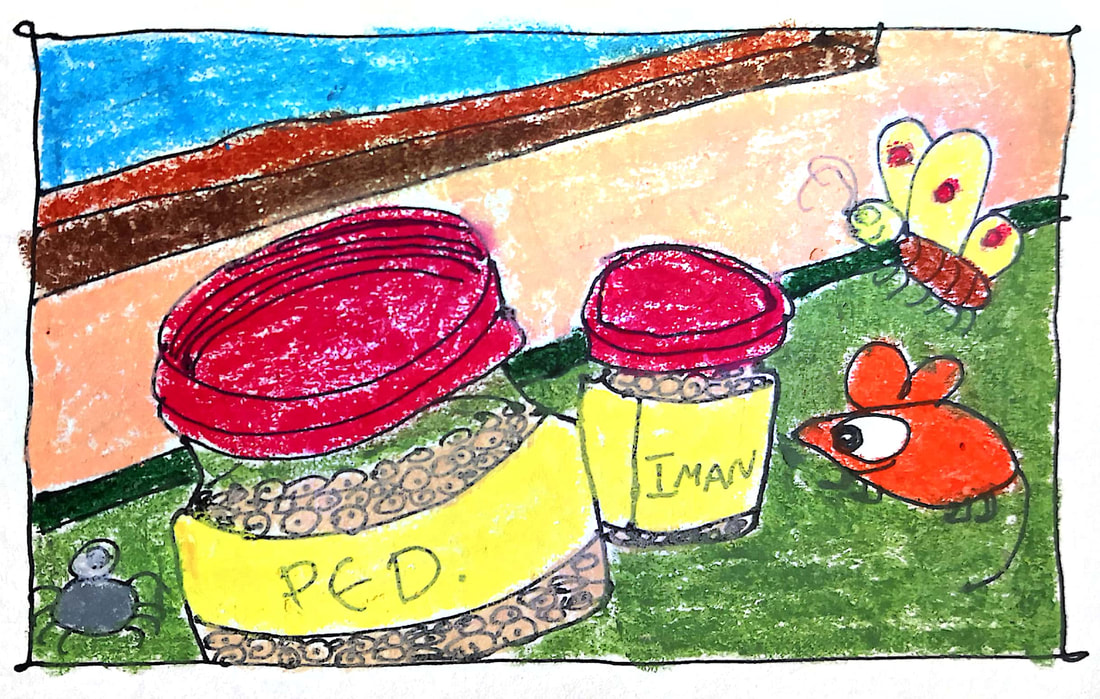
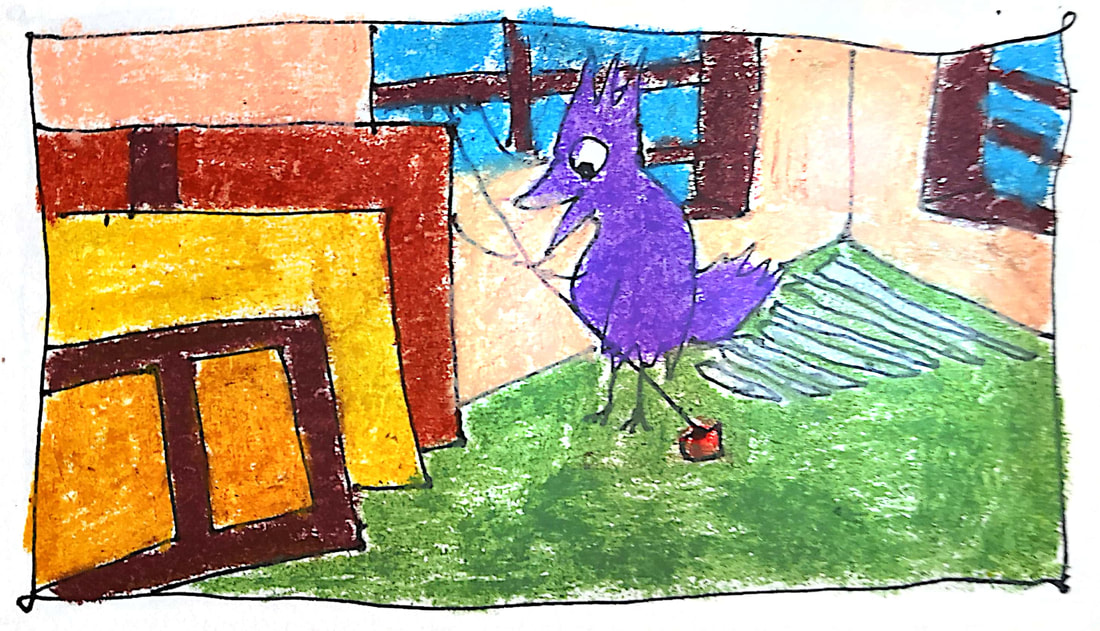
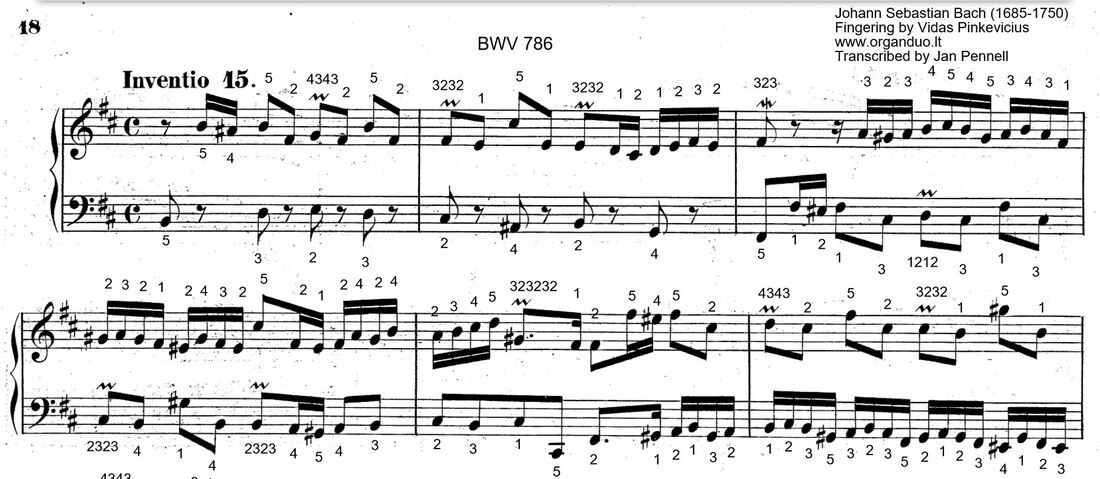




 RSS Feed
RSS Feed